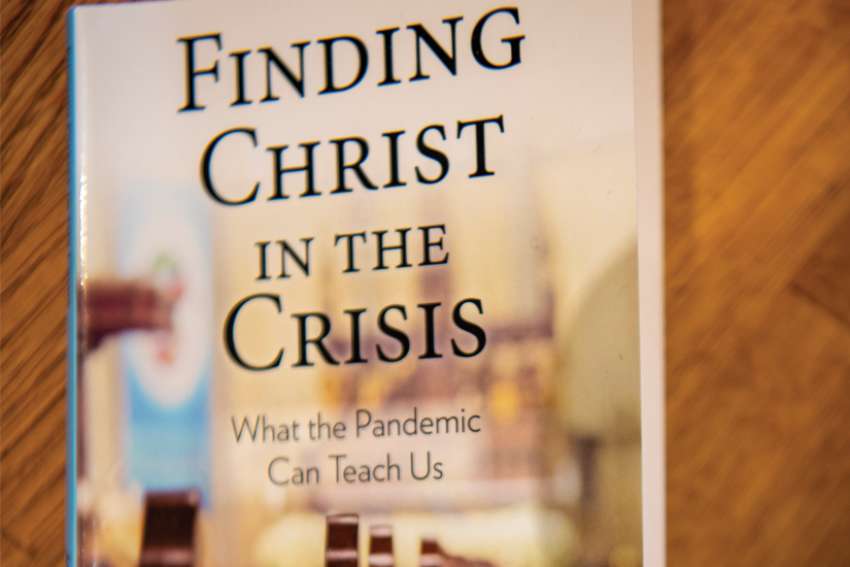“It was hard to function every day. It was hard to get going with stuff outside of basic duties,” Ayre told The Catholic Register.
He and many of the priests he knows say pastoring a parish has been more taxing through the COVID lockdowns. Livestreaming weekday Masses turns the lonely pastor into a sacristan, cameraman, sound technician, social media editor and priest all at once. Keeping parishioners informed of the ever shifting rules for Mass attendance is a challenge. Baptisms come one at a time, given the limit of 10 people in the church.
During the lockdown, Ayre was moved to a new parish, from Holy Family, Notre Dame in Port Alberni to St. Peter’s in Nanaimo, B.C. He’s had the additional problem of trying to get to know his new parishioners when they’re simply not there every Sunday.
The experience has made Ayre a little more sympathetic to what COVID-deniers and angry, anti-mask partisans have been reacting to, but it hasn’t changed his mind about how Christians should think and behave in these extraordinary times.
“I would never fall into that reactionism,” he said.
Ayre is the co-author with Michael Heinlein of Finding Christ in the Crisis, What the Pandemic Can Teach Us. It’s a quick read, less than 100 pages, that argues for a Catholic, biblical and sacramental understanding of the COVID crisis. It is an antidote to the bitter, political arguments that try to skirt around scientific facts and misunderstand the theological reality of faith in hard times.
“We are not being persecuted. Maybe sometimes we are being treated unfairly, but that’s not persecution,” said Ayre. “Maybe things aren’t exactly fair. But who ever said the Church was going to be treated fairly?”
Ayre doesn’t deny that people suffer when their normal sacramental life has been interrupted. But he cannot understand people treating the Eucharist as though it were their personal possession, demanding that governments guarantee their access to it. Christians from St. Paul on down through the centuries have welcomed suffering — especially suffering for the sake of the good of others.
In the book, Ayre and Heinlein warn against “spiritual narcissism.”
“Spiritual narcissism is looking after our own spiritual needs but forgetting that the goal of our own needs is to feed our service to our neighbour,” they write. “Spiritual narcissism means caring only for your own spiritual health and forgetting what is good for our brother and sister.”
Ayre also points out that many saints — including St. Therese of Lisieux — lived lives of great holiness without daily or weekly access to the Eucharist. At times, St. Therese would have communion as infrequently as twice a year, Ayre said.
The book’s argument for a calm and charitable attitude to COVID lockdowns isn’t preaching passivity.
“It would be nice if the government could really do a better job at communicating,” he said. “The Church does have to speak up, perhaps just a little bit more. If we’re going to be closed, that’s fine. But I think we’re owed explanations.”
If Easter is a little quieter, a little strange, a little more isolated than Catholics are used to, that hardly cancels the essential truth of Easter, Ayre said.
“There’s always hope, because Christ is risen. That is the essential message of Christianity,” he said. “Hope is recognizing a presence. Christ really is here, in that we are configured to Him through baptism — really and truly. He’s always there. Just because you can’t get to Mass right now — as normal and as important as that is — your baptism is a real connection. We are configured to the life of the Trinity through baptism. That’s no small potatoes, right?”
The book has had overwhelmingly positive reactions, with many parishes buying hundreds of copies from publisher Our Sunday Visitor. Conspiracy theorists and anti-maskers have been lightly sprinkled among dozens of grateful and appreciative notes Ayre has received.
“You get some real wackos, but that’s always the case,” he said. “I’ve heard them all. I kind of joke now that I can’t wait to get vaccinated so I can get better cell reception.”


